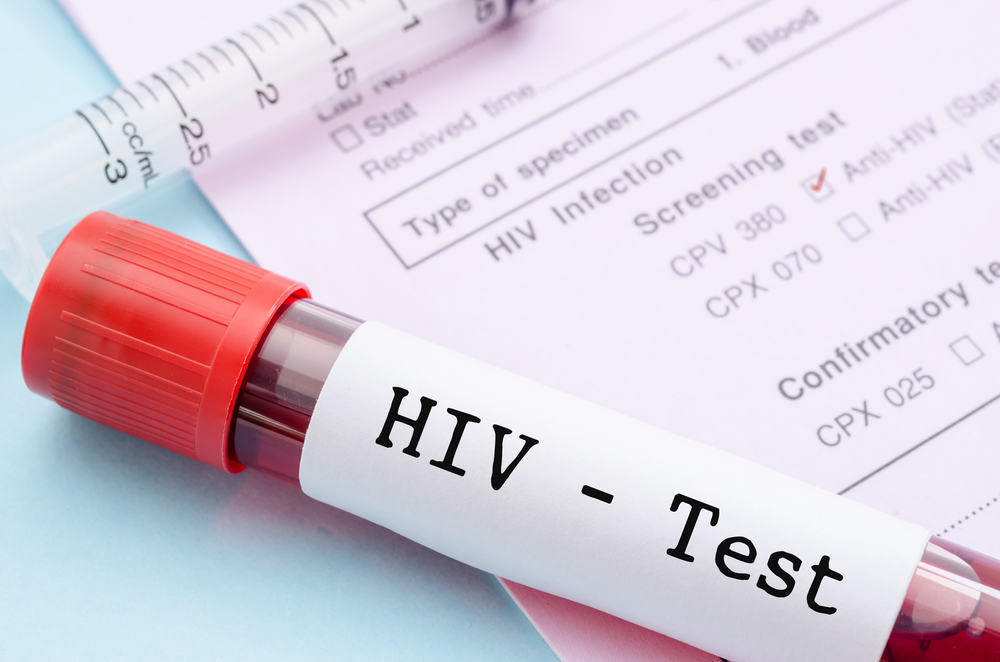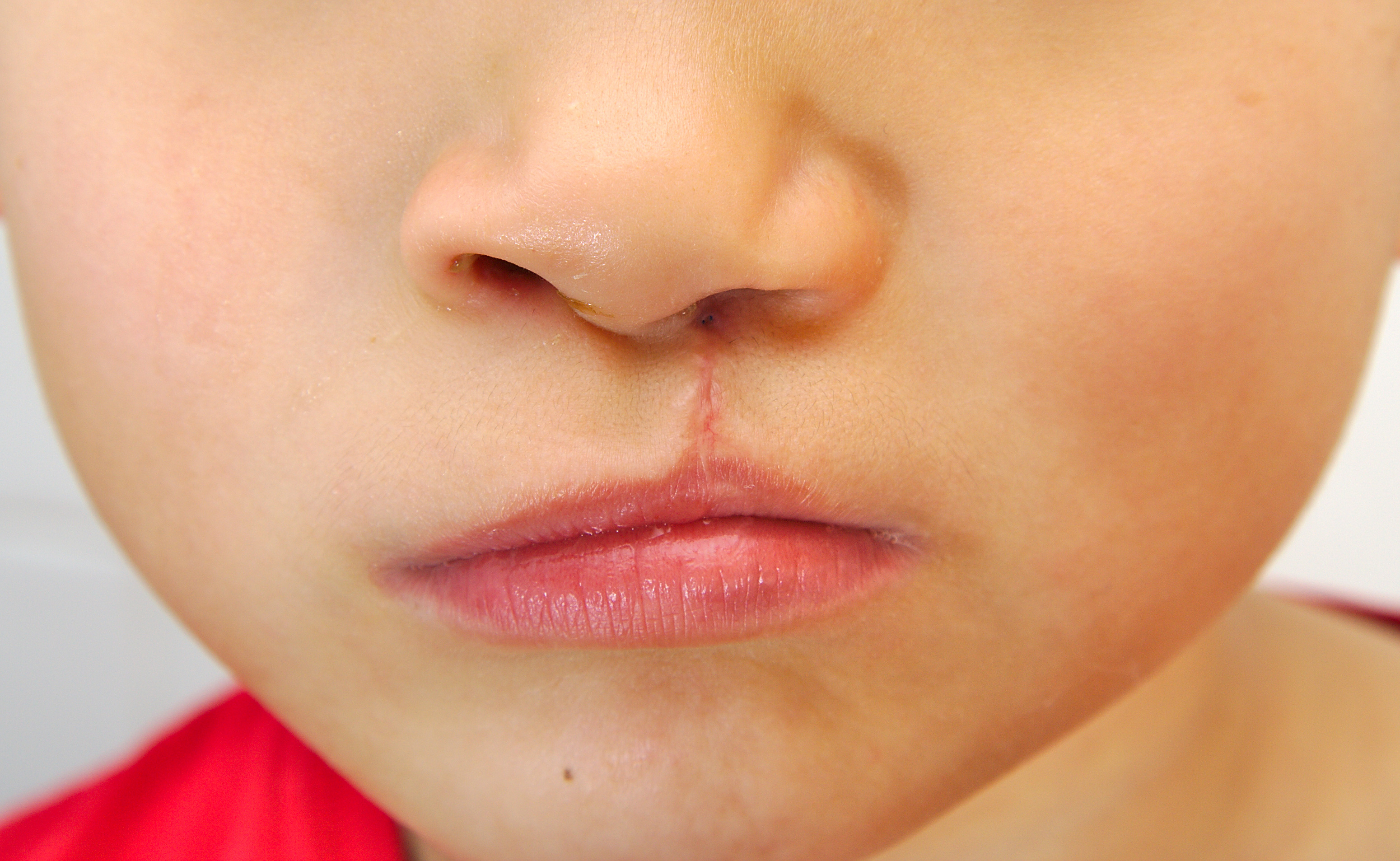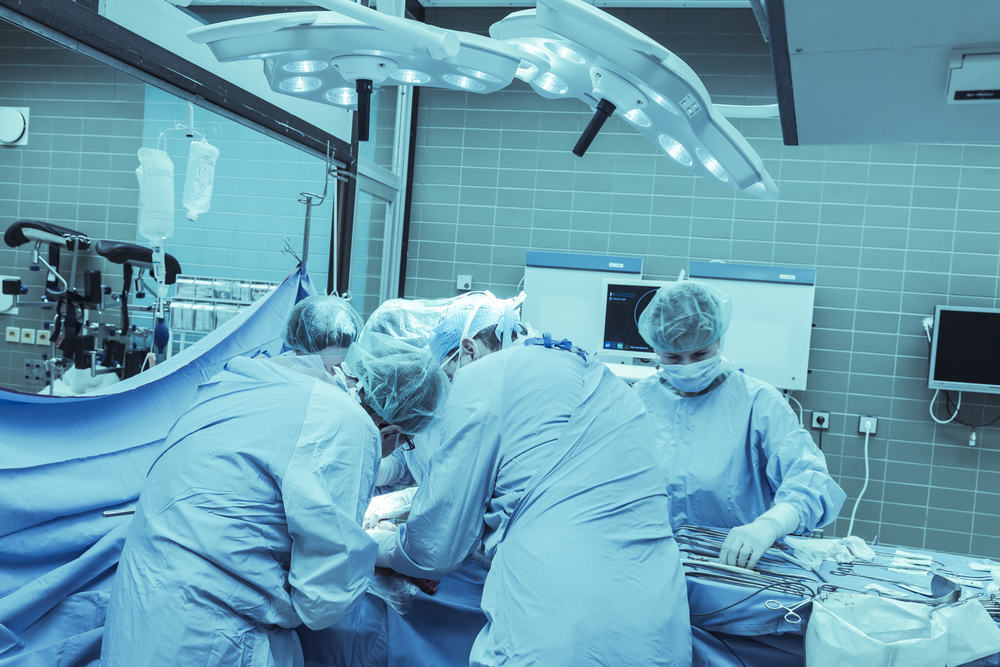Contents:
Medical Video: Understanding Early Pregnancy Loss
Pregnancy makes your body have to carry additional burdens, and health conditions before you get pregnant can affect how healthy you are during pregnancy. This can also have an impact on the well-being of the baby in your womb.
If you have a long-term chronic condition, such as epilepsy or one of the conditions listed below, this can affect the decisions you make about your pregnancy, such as how you will deliver.
Although there are generally no specific reasons why you cannot have a smooth pregnancy and a healthy baby, some health conditions need careful management to minimize the risks for you and your baby.
Health conditions that might affect the safety of pregnancy
If you have a chronic condition - one of the conditions listed in this article - it is very important to make an appointment with a doctor or specialist before you plan a pregnancy or as soon as you are pregnant. This is so that you together with your team of doctors can develop a treatment plan that is tailored to your needs.
Also, if you are taking drugs, do not stop the dose without consulting a doctor.
1. Asthma
It's less likely for pregnancy to cause asthma if you have never had this condition before. But, asthma is a serious medical condition that has the potential to complicate, often unexpectedly, in the safety of your pregnancy. When women who have asthma are pregnant, studies of one-third of patients improve, such as it worsens, and the last third does not show any changes, the NHS reported.
A review of studies of asthma and pregnancy found that if asthma symptoms worsen, it is most likely to occur in the second and third trimesters (after about 13 weeks), with a peak in the sixth month. Another study found that the worst symptoms occurred between weeks 24 to 36 - after this, symptoms decreased and about 90% of women did not have asthma symptoms during labor or birth.
Pregnancy can affect asthma patients in various ways. Hormonal changes that occur during pregnancy can affect the nose, sinuses, and also the lungs. Increased estrogen hormone during pregnancy contributes to capillary (small blood vessel) congestion in the lining of the nose, which can cause nasal congestion during pregnancy (especially during the third trimester). A surge in progesterone causes an increase in breathing, and a feeling of shortness of breath may be experienced as a result of an increase in hormones. This series of events may be misunderstood by or adding to allergies or other triggers of asthma.
The best way to ensure a healthy pregnancy is to keep your asthma well controlled by sticking to your asthma treatment plan. If your asthma is well controlled, there is little or no risk for you or your baby.
2. Hypertension (high blood pressure)
Before trying to get pregnant, women with hypertension should be counseled about the risk of pregnancy. If they are pregnant, pregnancy care must be carried out as early as possible and include basic kidney function (for example, serum creatinine, BUN), fundoscopic examination, and directed cardiovascular evaluation (auscultation and sometimes ECG, echocardiography or both).
At the end of pregnancy, high blood pressure can pose a serious threat to the overall health of the mother and baby. Similarly, the condition of hypertension is not controlled. Both of these situations can cause maternal kidney damage and increase the risk of low birth weight babies or preeclampsia, and must be treated immediately.
Aspects of the benefits of treatment for high blood pressure should be considered against the potential risks for the fetus in the womb. Many women with chronic hypertension will take drugs to keep their blood pressure in the best range for them (target range). Some medication treatments for high blood pressure are not recommended in pregnancy. If you take tablets, it is important to consult with your doctor to find out if you need to change to another drug before you become pregnant. If you take medication to control your blood pressure and you are pregnant, immediately notify your doctor. You may need to change to a different drug - the doctor will talk to you about this.
It is important for your team of doctors to closely monitor the progress of your condition to ensure that your baby's growth remains normal.
3. Coronary heart
Coronary heart disease (CHD) results from a narrowing of blood vessels that supply blood and oxygen to the heart. Coronary heart disease during pregnancy is a rare condition, because this disease is more common in women over 50 years. However, this phenomenon is becoming increasingly common, following the increasing number of women who are pregnant at an older age, or who are overweight or smoking. Both smoking and being overweight increase your risk of coronary heart disease.
The main risk for women with coronary heart disease who are pregnant is that they will have a heart attack during pregnancy. Heart attack is the main cause of maternal death in pregnancy. The risk to the baby is unknown, although some of the drugs you consume for CHD or related conditions, such as diabetes and high blood pressure, can affect your baby.
The best way to ensure a healthy pregnancy is to visit a doctor or heart specialist before you start trying for a baby. An obstetrician or cardiologist can advise on medications that are safe for consumption during pregnancy, and may be able to adjust your treatment to minimize any risk for you and your baby.
4. Diabetes
Diabetes is a condition that is affected by pregnancy and also affects the course of the pregnancy itself. If you already have type 1 or type 2 diabetes, you may have a higher risk of having a large weight baby (which increases the risk of difficult births), has an induced labor, runs a caesarean section, gives birth to a congenital birth defect (especially heart abnormalities and nervous system), respiratory problems since the time the baby is born, and have a miscarriage or stillbirth (stillbirth). Your baby is also at risk for developing obesity or diabetes later on.
It is important for women with diabetes to manage their blood sugar levels before becoming pregnant. High sugar levels can cause birth defects during the first few weeks of pregnancy, often before they know they are pregnant. Controlling blood sugar levels, routine use of insulin, and taking a multivitamin with 40 micrograms of folic acid every day can help reduce this risk. Unfortunately, pregnancy makes diabetes far more difficult to control; in general, blood sugar and insulin requirements will increase during pregnancy.
The best way to reduce the risk for yourself and your baby's health is to make sure your diabetes is controlled before you become pregnant. Consult your obstetrician or your diabetes specialist for advice. You should be referred to a diabetes pre-conception clinic specifically for support before you try to get pregnant.
5. Obesity
Obesity can make pregnancy more difficult, increase the chances of a diabetic woman developing during pregnancy, which can contribute to a difficult birth. Obesity also increases the risk of high blood pressure, preeclampsia, gestational diabetes, blood clots, stillbirths, and emergency caesarean section or induced labor.
If you are overweight, the best way to protect your baby's health and well-being is to lose weight before becoming pregnant. By achieving a healthy weight, you increase your chances of getting pregnant healthily and reduce the risk of problems associated with being overweight in pregnancy. Good antenatal care can also help to minimize this risk.
If you are pregnant before losing weight, try not to worry - most pregnancies of obese women are successful. but maybe the problem for your baby can include premature birth, neural tube defects (spina bifida), and a higher risk of obesity later in life. NICHD researchers have found that obesity can increase a baby's risk of heart problems at birth by 15%. If you are very overweight and pregnant, do not try to lose weight during your pregnancy, because this may not be safe. There is no evidence that losing weight while you are pregnant will reduce the risk.
6. Epilepsy
It is difficult to predict how pregnancy will affect epilepsy. For some women, their epilepsy is not affected, while others may see an increase in their seizures. But as pregnancy can cause physical and emotional stress, seizures can also become more frequent and severe. Hormonal cycles and menstruation, pregnancy, menopause - all stages of life are affected by epilepsy. While most women with epilepsy can and are pregnant, they may have certain risks that women do not have without epilepsy. This risk can affect their health and their babies.
Their treatment of epilepsy may be affected by their hormonal or epileptic state and that treatment can affect their hormones. If you take drugs to control your epilepsy, it's recommended that you take a high dose of daily folic acid (5 mg) as soon as you start trying to get pregnant. Your doctor can prescribe this. If you suddenly get pregnant and haven't consumed folic acid, consume it immediately. Whatever you do, don't change or stop epilepsy treatment without specialist advice. Severe seizures during pregnancy can be fatal for you and your baby.
But if managed properly, the risk will be very small. Even more than 90% of women with epilepsy who are pregnant can have a healthy baby.
7. Kidney disease
Women with chronic kidney disease are less able to adapt to the kidneys needed for healthy pregnancies. Their inability to increase kidney hormone often causes normocytic normochromic anemia, reduces plasma volume expansion, and deficiency of vitamin D.
There is solid evidence to show that women with very mild kidney disease (stages 1-2), normal blood pressure, and little or no protein in urine (called proteinuria) can have a healthy pregnancy. Proteinuria is a sign of kidney damage. Your body needs protein, but it must be in your blood, not in urine.
In women with moderate to severe kidney disease (stages 3-5), the risk of complications is far greater. For some women, the risks to maternal and child safety are high enough that they should consider avoiding pregnancy.
Hypertension, proteinuria, and recurrent urinary tract infections often coexist in women with chronic kidney disease, and it is difficult to say how much each factor contributes to poor pregnancy outcomes. It seems, however, that each factor, both individually and cumulatively, harms the fetus. If pre-eclampsia develops, maternal kidney function often worsens, but the addition of prerenal wounds that will reduce kidney blood flow, such as peripartum bleeding or regular use of non-steroidal anti-inflammatory drugs, can threaten maternal kidney function.
Women with kidney failure are usually advised to avoid planning a pregnancy. The level of complication is very high. The risks for mother and pregnancy safety are also very high. Women with severe kidney problems have the greatest difficulty getting pregnant, the highest level of miscarriage, and minimal successful pregnancy outcomes. If you are thinking of getting pregnant, talk to your doctor. If you are pregnant, you will need strict medical supervision, changes in treatment, and more dialysis to have a healthy baby.
8. Autoimmune disease
Autoimmune diseases include conditions such as lupus and thyroid disease. Some autoimmune diseases can increase a woman's risk for problems during pregnancy. For example, lupus can increase the risk of preterm birth and stillbirth.
Women with kidney disease or lupus (a disease caused by changes in the immune system causing inflamed connective tissue and organs) face a real risk during pregnancy, if symptoms can worsen significantly and cause serious illness. Because this disease can affect the mother's ability to supply oxygen and nutrients to the baby through the placenta, this disease can also cause problems for the baby. Babies from these women may not be able to grow and gain weight optimally; some may be stillborn.
Some women may find that their symptoms increase during pregnancy, while others experience an increasingly severe episode of lupus and other challenges. Certain medications to treat autoimmune diseases can harm the fetus as well.
Uncontrolled thyroid disorders, such as an overactive or underactive thyroid can cause problems for the fetus, such as heart failure, poor weight, and birth defects.
9. HIV / AIDS
HIV / AIDS damages cells from the immune system, making it difficult to fight certain infections and cancers. Pregnant women can transmit the virus to the fetus during pregnancy; transmission can also occur during labor and childbirth or through breastfeeding.
In most cases, HIV will not cross through the placenta from mother to baby. If the condition of the mother is healthy in other aspects, the placenta will help provide protection for the developing baby. Factors that can reduce the protective ability of the placenta include infection of the uterus, recent HIV infection, advanced HIV infection, or malnutrition. If a woman is infected with HIV, the risk of transmitting the virus to the baby decreases if she remains as healthy as possible. Fortunately, effective treatment is available to reduce the spread of HIV from mother to fetus, including neonatal babies or more "mature" babies. Women who have a very low viral load may be able to undergo normal labor with a low risk of transmission.
The choice for pregnant women with a higher viral load (a measure of the amount of active HIV in the blood) is a caesarean section, which reduces the risk of HIV transmission to the baby during labor and delivery. Early and regular prenatal care is very important. Women who take medication to treat HIV and have a cesarean can reduce the risk of transmission by up to 2 percent.
10. Mental illness
If you have a history of severe mental health problems - or are still active today, you are more likely to experience episodes of disruption during pregnancy or in the first year after giving birth than at any other time in your life.
Severe mental health problems include affective bipolar disorder, major depression, and psychosis. After giving birth, severe mental illness can develop faster and more seriously than before. Other, lighter mental health problems can also be more problematic so far, although they may not always happen to you. Everyone is different, and has different triggers for relapse. You may also worry about your well-being.
Depression and anxiety during pregnancy have been linked to adverse pregnancy safety outcomes. Women who suffer from mental illness during pregnancy tend to receive inadequate prenatal care and are more likely to switch to alcohol, tobacco, and other substances that are known to affect pregnancy outcomes. Several studies have shown low birth weight and retardation of fetal growth in children born to depressed mothers. Premature birth is another potential for other pregnancy complications in women who experience depression during pregnancy. Pregnancy complications related to depression and anxiety at the end of pregnancy are also known, including an increased risk of preeclampsia, operative labor, and emergency baby care in the ICU for a variety of conditions including respiratory disorders, hypoglycemia and prematurity.
During your first antenatal consultation, your doctor should ask you about your mental health problems in the past. You should also be asked about this after the birth of your baby. This aims to enable your care team to be able to detect every warning sign faster and plan the right treatment for the safety of your pregnancy.
READ ALSO:
- Various Causes of Preeclampsia in Pregnant Women
- 9 Steps to Do If You Can't Get Pregnant
- List of Nutrition Needed When Planning a Pregnancy












